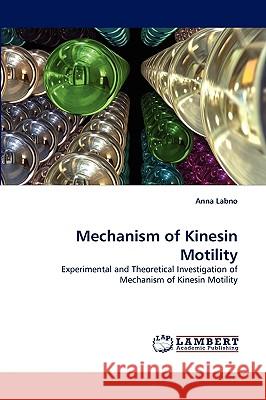Mechanism of Kinesin Motility » książka
Mechanism of Kinesin Motility
ISBN-13: 9783838354187 / Angielski / Miękka / 2010 / 68 str.
Motor proteins are enzymes that are responsible for molecular transport. Those proteins convert the chemical energy derived from the hydrolysis of ATP directly into mechanical work and are necessary for the eukaryotic cell to achieve complex organizational and structural tasks. Motor proteins allow efficient transport of molecular structures and organelles such as vesicles, mitochondria, and chromosomes which is necessary since diffusion is too slow to efficiently move material from one part of the cell to another on physiological time scales [1]. This ability to control cellular transport processes and cell structure allowed for the development of complex cellular organelles such as cilia or flagella in single-cell organisms and made possible the development of multi-cellular organisms with highly specialized cells. Those molecular motors have served as an important model system for understanding biological motility. Microtubule-based motors of the kinesin superfamily are involved in intracellular transport, mitosis and meiosis, control of microtubule dynamics and signal transduction pathways [2].











